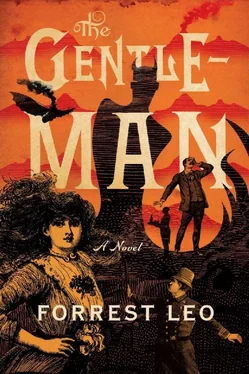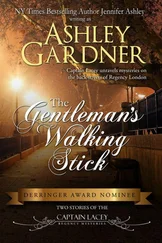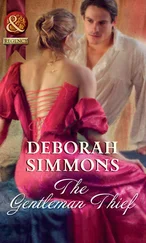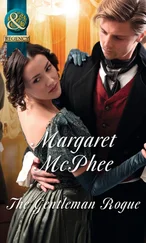I had a passing acquaintance with Lord Lancaster, who has a restless mind trapped by the constraints of domesticity and a portly person, but I had never met his wife. She turned out to be much as you imagine her to be from the papers, only rather shorter and even more terrible.
The gentlemen of the party were enjoying cigars before dinner. I have no fondness for cigars, but I appreciate the ritual of girding up one’s loins in the fellowship of one’s own gender before mingling at table. Besides, Lord Lancaster’s smoking room is notably fine. The walls are decorated with intriguing memorabilia sent home by his son — a dozen tribal masks from a dozen countries, bits of colourful native costume, a gleaming blunderbuss — and the fireplace is large and the armchairs luxurious.
We sprawled in that peculiarly insolent way of the male gentry, smoking expensive cigars and speaking of nothing in particular.
Pendergast, a tragically short fellow with a peninsular nose, was attempting to be more pretentious than Collier, and was succeeding without too much effort. Every now and again he lobbed an insult my way, but I was not in the mood to test wits. I was too busy seducing Lancaster.
‘Are you a political man, Mr Savage?’
‘Not especially, my lord. I find that Politics and Art are rarely willing bedfellows; and when forced to it, Politics invariably takes Art’s virtue without so much as a by-your-leave.’
He chuckled at that, but I did not. To never laugh at one’s own wit is a thing I learned from Pendergast. (In a nearby armchair, Pendergast at that moment answered a question I did not hear with, ‘Certainly not — I relegate such things to Mr Savage,’ and laughed loudly.)
‘Always wished I had time for art,’ said Lancaster. ‘Bought some paints, once, but Eleanor had ’em thrown out. Said it was an accident and blamed it on a maid, but you know how those things go. Probably for the best. Vivien, though — she inclines that way, you know.’
‘Does she?’ I murmured.
‘Certainly,’ said he. ‘You and she ought to have a talk sometime. Think you’d get on famously.’
I was about to say something about how I should like that very much indeed, and to suggest future plans for such an acquaintance, when Lady Lancaster entered the room and curtly informed us that dinner was served and we were already late. I was nettled at the interruption. As it happened, though, I needn’t have been — for when we took our places at the table I was upon Vivien’s right.
Of all the literati at that salon, I was perhaps the most famous. It was because of this, I am certain, that I was seated next to Vivien. Lady Lancaster has a fondness for fame. She does not court it herself, but courts those touched by it. (It is this, rather than any actual interest in the arts, which causes her to hold dinners like the one I am describing.) I was also perhaps the handsomest at the table. I mention it not out of vanity — I am not a vain man — but to emphasise the importance the Lancasters attach to appearances, and also in case you have never seen a likeness of me. I am neither tall nor short, and very slender. I have very pale skin, very dark hair which is unruly, and very blue eyes — not a blue like Vivien’s, but blue all the same. (The Lancaster blue is something akin to the sky at its bluest; the Savage blue is the sort of blue the sea turns when it is grey. If this does not make sense to you, you are not a poet.)*
I couldn’t have known it at the time, but it was my good fortune that Vivien was approaching twenty-one and her mother felt it was past time she was married to someone in the public eye. Marriage is important to the Lancasters. It was and is a source of most acute pain to Lady Lancaster that her son is not yet domesticated. (He is at the moment in Siberia, I believe.)
I do a tolerable job of fitting into society.* I do not flaunt my native eccentricity, nor do I endeavour to seem any more mad than I am. The poetry published under my name displays vision, refinement, learning, wit, and taste — but not insanity. That I reserve for those offerings I distribute by secret means, under noms de plume.* My fame, as I have said, is not insignificant, and it was evident that Lady Lancaster, though dragonish in demeanour, was a dragon with a keen desire to impress. (It need not be pointed out that a mercenary dragon is far more dangerous than a work-a-day dragon.)
And so I was seated next to Vivien, and I do not believe it was an accident. Pendergast was on my right, which was a nuisance; but at the time I remember thinking it a small price to pay to sit beside one so fair.
The dining room at Easton Arms is very grand. The table is a mile or two long, and it was laid that evening with everything from venison to wild boar to caviar to quail eggs. There were sauces which defied description and puddings which boggled the mind. The serving trays were silver, but worked with the requisite gold filigree. I was not alone among the guests in my nervousness to take food from a platter worth more than I had ever owned. We were spared, however, the terror of actually holding one of those trays by the appearance of a flotilla of footmen who served us in frankly eerie silence, controlled apparently by minute signals of Lady Lancaster’s head.
The dinner began, and though I stole many glances at my fair neighbour, I found myself for the only time in my memory unable to begin a conversation. I spent the first course searching for a subject and feeling a coward. I could not, try as I might, speak to Vivien. I once made it so far as to venture a remark upon the weather, but Pendergast swooped in and intercepted it.
‘I’ve been considering a poem about the rain, you know,’ he said, as though my comment had been meant for him.
‘I trust the rain is magnanimous enough to forgive whatever offence you might give it,’ I replied.
‘You wrote a rain poem once, didn’t you, Savage?’ called Blakeney from across the table.*
‘I can’t recall,’ said I. ‘I might have, but it’s foggy in my memory.’
‘Foggy!’ exclaimed Lady Whicher rapturously. ‘Did you hear, Henry? He said his rain poem was foggy!’
‘A sloppy pun, Savage,’ declared Pendergast.
‘I’d have made a better, but I can’t hear myself think over the noise of your cravat.’
‘This cravat,’ he replied pompously, ‘was given me by a French countess who expressed an affinity for my verse.’
‘One hears at the club that the cravat wasn’t the only thing she gave you.’ A scandalised murmur went round the table and it seemed I had scored a hit — but Pendergast was a stauncher opponent than that.
‘No,’ he said without missing a beat, ‘she gave me also an annuity of two hundred pounds and a promise to bring out a uniform edition of my published works. I asked her to pay you the same compliment, but she said your output was too slim to bear the cost.’
‘Did she?’ I said, taking the bait. He was building to something, and it amused me to let him see it through.
‘She did, and very bad manners I thought it, too. So I said, “But madam, surely the sparsity of Mr Savage’s verse makes it the more precious, rather like ambergris?” To which she replied, “Much like ambergris, Mr Pendergast, I can only stomach Mr Savage’s poetry after it has been refined in the fire.”’
The table applauded his thrust, but I remained unruffled. I have always enjoyed sparring with Pendergast, and that night it was also a means to delay converse with the divinity on my left. Besides, the key to success in a battle of wits is to maintain one’s equanimity at all times. While the company lauded his hit, I calmly considered a riposte. I had almost got one when Vivien spoke up.
‘It is a pity, Mr Pendergast,’ said she, in a voice which was low and husky and altogether glorious and in retrospect rather like a siren’s, ‘that much like Mr Savage’s poetry, ambergris needs no fiery refinement.’
Читать дальше












